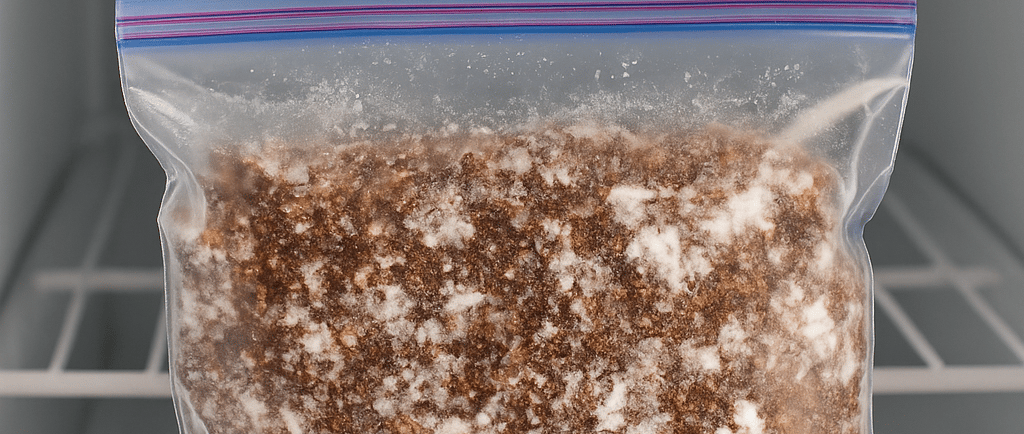Should You Freeze Mushroom Substrate? Pros, Cons, and What to Expect
Wondering if you can freeze mushroom substrate before using it? This post breaks down the pros, cons, and real-world results from freezing bulk substrate—whether you’re prepping ahead or trying to kill off pests.
GROWING
7/3/20252 min read


❄️ Can You Freeze Mushroom Substrate? (And Should You?)
If you’re growing mushrooms at home, you might find yourself wondering:
Can I freeze my substrate to save it for later?
Maybe you prepped too much. Maybe you got delayed on your spawn.
Let’s break down whether freezing your substrate actually works—and when it might be a bad idea.
🧊 Can You Freeze Mushroom Substrate?
Technically, yes—you can freeze it.
But whether you should depends on the type of substrate and how you plan to use it.
🧵 Bulk Substrates (Coir, Vermiculite, Manure, etc.)
Freezing before spawning (with no mycelium added yet):
✔️ It’s safe. The structure and nutrients will still be usable.Freezing after spawning (already colonized):
⚠️ Not recommended. Mycelium is living tissue—freezing can damage or kill it, leading to stalled growth or contamination.
🧠 Does Freezing Substrate Kill Contaminants?
Nope.
Freezing slows things down, but it doesn’t sterilize anything.
Bacteria, mold spores, and other contaminants can survive in a frozen state and bounce right back when thawed.
That means:
If your substrate wasn’t clean to begin with, freezing won’t fix it.
If you had it pasteurized or sterilized, freezing might be safe for short-term storage—but there are better options.
🔁 Does It Still Work After Thawing?
If you froze your substrate before inoculating, it can still work—
but it might not perform as well.
Expect:
Slightly slower colonization
Increased risk of contamination (especially if not sealed properly)
Possible texture changes (e.g. overly soggy after thawing)
🧪 When Is It Actually Worth It?
Freezing substrate might make sense if:
You had a change of plans and can’t spawn for a few weeks
You prepped too much and don’t want to waste materials
You’re storing it airtight and short-term
But for longer storage, you’re usually better off:
✅ Keeping it sealed in the fridge (up to a few weeks)
✅ Prepping smaller batches as needed
✅ Storing your grains or coir dry and pasteurizing when ready
🧤 What I Recommend
From experience, I don’t freeze substrate anymore.
Instead:
I prep what I need
If I have extra, I bag it and refrigerate short-term
If it sits too long, I compost it or use it in the garden
Freezing might seem convenient, but it can cause more issues than it solves—especially if you’re already battling contamination or if you're working in a non-sterile setup.
Final Verdict:
Can you freeze substrate? ✅
Should you? Usually not.
Want proven substrate recipes, plus how-to guides on agar, liquid culture, and more?
👉 Grab my eBook on Substrate & Culturing Methods here.
Cultivation
Helping you master gourmet mushroom cultivation — on or off the grid.
© 2024. All rights reserved.
